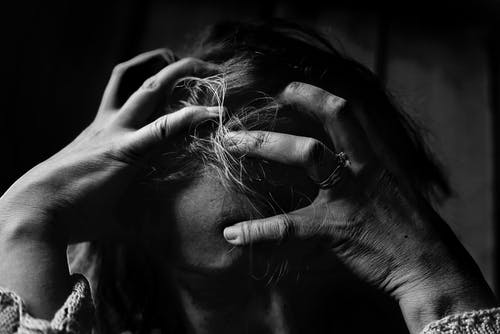The scalp is the skin that covers the skull and protects it from damages. An itchy scalp can sometimes pose concerns and discomfort. Continuously itching your head is uncomfortable. The act of itching itself could be an intricate problem and the prevalence of an itchy scalp is prevalent in men and women. An itchy scalp may be seborrheic dermatitis and can be due to a number of causes, such as infections or a variety of skin conditions.
An itchy scalp is a frustrating situation that affects a lot of people. It is also known as scalp pruritus. Patients with underlying dermatological conditions are more prone to developing scalp priritus.
Signs And Symptoms Of An Itchy Scalp
An itchy scalp is a condition that presents in a variety of symptoms. Itching and pain in the head are the most common symptoms of the condition. Some symptoms associated with itchy scalp include:
- Dry skin
- Patches of bald areas
- Pustules (pus-filled sores)
- Scales on the scalp
- Redness and soreness of the scalp
- Swelling and irritation
- Tingling sensation
Causes
The prodigious leading cause of an itchy scalp is Seborrheic Dermatitis. A study carried out in 2011 explains that many problems can cause an itchy scalp. Potential causes of an itchy scalp include:
- Contact dermatitis
- Seborrheic Dermatitis
- Discoid lupus erythematosus
- Anxiety disorders
- Infected conditions of scalp such as head lice
- Scalp psoriasis
- Alopecia (scarring type)
- Acne
Seborrheic Dermatitis
Seborrheic dermatitis isn’t dandruff but is commonly known as such. Seborrheic dermatitis is an inflammatory condition that mainly affects your scalp, but it can also affect other parts of the body (face, nose, ears, and chest). Many scales (white or yellow) appear on the scalp and may also appear on the body. The scales are itchy and are a significant contributor to an itchy scalp. It also affects infants and is known as Cradle Cap.
Do You Have It?
No exact cause of seborrheic dermatitis is known. However, if you experience these conditions outlined below, you are more likely to develop seborrheic dermatitis:
- Oily skin (hyperactivity of oil glands in the skin)
- A genetic disposition for dandruff
- Are an inhabitant of a cold and dry region
- Are on specific medications such as buspirone, fluorouracil, methyldopa, etc.
- Yeast infection of the scalp (malassezia species)
Prevention
The adoption of these steps can go a long way in helping you soothe your scalp:
- Avoid using dyes and chemicals on the head to prevent allergic responses
- Avoid sharing personal products (brushes, combs and towels, etc.) with people suffering from head lice or have an itchy scalp. Head lice cause dryness and may aggravate your scalp
Treatment
Some prefer using synthetic products while others like sticking to homemade remedies for the problem. Both strategies have worked in respective cases. However, a combination of both strategies could actually work the best. The ideal approach to manage an itchy scalp is by treating the root cause of itchiness. We recommend that you start off with home remedies for seborrheic dermatitis and dandruff before hopping on to taking medicines.
Home Remedies For Seborrheic Dermatitis And Dandruff
- Manage your stress. Stress can trigger dandruff
- Spend more time in the sun. Sunlight can help with an itchy scalp
- Use some tea tree oil. A study suggests that 5% tea tree is a helpful dandruff treatment
- Use apple cider vinegar, coconut oil, tea tree oil and peppermint oil
- Dipping into the ocean – salt water can help soothe out an itchy scalp
Medicinal Treatment For Seborrheic Dermatitis And Dandruff
Use anti-fungal and anti-dandruff shampoo. Look for products with these ingredients:
- Salicylic acid – helps in removing dead cells
- Tea-tree oil – serves as an antibiotic due to its antifungal properties
- Ketoconazole – has potent antifungal agent
- Zinc pyrithione – works against the growth of malassezia
- Coal tar and selenium sulfate – has antifungal and oil-reduction properties
An itchy scalp is primarily caused by seborrheic dermatitis and dandruff in addition to many other causes. Using antifungal and anti-dandruff shampoos is effective in treating itchy scalp in addition to the use of household items such as tea tree oil and coconut oil.
References
Bin Saif, Ghada A., Marna E. Ericson, and Gil Yosipovitch. “The itchy scalp–scratching for an explanation.” Experimental dermatology 20.12 (2011): 959-968.
Satchell, Andrew C., et al. “Treatment of dandruff with 5% tea tree oil shampoo.” Journal of the American Academy of Dermatology 47.6 (2002): 852-855.





